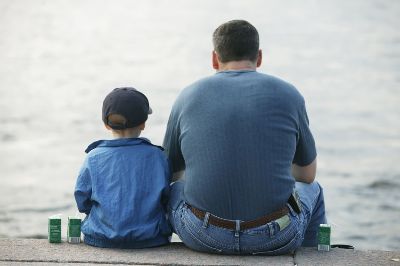
“The Lord said, my precious, precious child, I love you and I would never leave you, during your times of trial and suffering when you see only one set of footprints in the sand it was then that I carried you”
Margaret Fishback Powers
 Preparing for our own death may be a major development task of old age but another feature of growing old is that it becomes increasingly likely that we will suffer the loss through death of loved ones, parents, husbands and wives, siblings, friends and even treasured pets.
Preparing for our own death may be a major development task of old age but another feature of growing old is that it becomes increasingly likely that we will suffer the loss through death of loved ones, parents, husbands and wives, siblings, friends and even treasured pets.
Covid19 has caused the loss of loved one’s on an unprecedented scale and has added to the stress of losing a loved one through the inability to be with the loved one before they passed or even attend the funeral in some cases. See Covid19 page.
There are various components of grief and this form of Counselling looks at the process of loss and death and how each stage affects us. Also looking at which factors may cause us to get stuck in a rut and not complete the process of grieving, the same approach works with individuals suffering from trauma.
Most people think of grief as therapeutic and we are often told “get it off your chest and have a good cry”. However, Grief is more complicated than that, we go through several steps, each of which is hard work and takes time.
It is not a passive process of letting out pent-up feelings. It is an active process of pushing out pent-up feelings. It is a positive letting go of someone who has been very precious to you for a long time.
Grief is important in that it is a halfway stage between the experience of losing something and coming to terms with that loss.
Shock
This is usually the first response, most often described as a feeling of numbness. However, feelings can include pain or calm and apathy.
It is as if the feelings are so strong that they are turned off, this can last from a few seconds to a few weeks.
There is a sense of disbelief in the death and a feeling of shock. There may be feelings, or a sense, that the deceased is present or is speaking. Sleep patterns may be disrupted.
Even when death comes at the end of a long illness, there is still the reality and shock of loss. The shock is greater still when death and bereavement are sudden. The loss encompasses a feeling of emptiness. There is a space where that person used to be, even if the person was hated.
Disorganisation
The bereaved person may be unable to do the simplest thing or alternatively may be able to organise the entire funeral- and then collapses. There is a primitive shutting down of all our emotions. It is a kind of mechanical cut-out which stops us from feeling any more hurt.
Denial
Usually an early feature of grief but this defence against feeling too much pain at once can occur any time throughout the process. In denial the bereaved person could behave as if the deceased were still alive.
We deny to ourselves that we are not going to find our loved one. There are strong mixed emotions and whilst knowing that death has occurred it cannot be accepted. There can be a period of seeking to bring the person back, there may well be feelings of anger and a sense of it being the fault of the deceased.
With anger we get indignant, rebellious and resentful that something we cherished so much has been taken away. We may feel self-pity. We may wonder what we have done to deserve this grief. We may feel we have been unfairly singled out.
Depression
This usually emerges as the denial breaks down and can also occur throughout the grieving process but it tends to get less frequent and intense. There can be a total sense of despair and desperation. The meaning of life and all there is, is questioned, it feels as if it is very difficult to cope.
Guilt
This can be both real and imagined, for actual neglect of the deceased when they were still alive or for angry thoughts or feelings.
Anxiety
This may take the form of fear of losing control of one’s feelings, of going mad or more general apprehension about the future and the realisation of one’s own mortality raising a fear of death and illness or of losing other loved ones.
Aggression
This can range from irritability towards family and friends, to outbursts of anger towards God or fate, doctors and nurses, the clergy or even the person who has died.
Resolution
As the emotions die down, an acceptance of the death emerges, an acceptance that life must go on. This usually occurs when our anger eventually burns itself out.
Letting go comes with acceptance, we know our loved one has gone.
Re-integration
Acceptance is put into practice and the bereaved re-organises their life in which the person who has passed over, has no place, of course they are not forgotten.
The bereaved learns to live with their loss, although special occasions such as the anniversary of the person passing, birthdays, Christmas and so on, can stir up feelings again for a short period of time.
It becomes possible to deal with the routine matters of life without total despair. It also becomes possible to re-integrate a part of the deceased within one-self and to move on with that as a strength.
This stage takes a long while to complete. Ultimately, if we have gone through all the different stages, re-growth takes place and we gradually return to normal.
” If not for love itself “
And tell me gentle Healer, how do you bind the wound of lovelessness?
What potions and salves do you carry in your bag that can mend a broken heart?
“I’m sorry” you say, “I have nothing, there is nothing I can do”
And that dear friend, is where you are wrong.Put down the bag, leave go of the rummaging for magic other than your own,
Open your heart, pick up a hand, gaze into an eye, share in one true moment,
And watch the Healing begin……
Janet F Quinn, RN, PhD (June 1996)
 Sometimes all we have to do is be with someone.
Sometimes all we have to do is be with someone.
Giving our time and our presence can be very important to someone who is suffering.
Holding hands or just looking into each other’s eyes for a moment, can have a miraculous effect.
Hearts meet and a Healing takes place.

Children coping with Bereavement
The trauma of death can turn a child’s world upside down. It’s an emotional rollercoaster of sadness, fear, confusion and guilt, with physical symptoms too. Bereavement hits children in different ways and how they cope depends on how old they are.
Sadly, a large number of children do have to cope with the enormity of death of someone close – 20,000 lose a parent every year in the UK and the death of a grandparent, a member of your extended family, a friend or even a beloved pet can all have a devastating effect.
Most parents don’t think to explain death to their children until someone they know passes away. It can be much easier for a child to handle if they have been made aware of it before hand. This might mean answering odd questions like “what does heaven look like”? and “is it dark in a coffin”?
When these arise try not to change the subject or palm them off with “I don’t know”. Children are fascinated by the physical aspects of death. Here is how grief impacts on children at different ages and how to help them cope……
Under sixes
How they are affected
Final and forever mean nothing to very young children who experience the persons absence as if they are in another country. They may view death as a sleep or a journey or understand it as “less alive”.
They will still react to the mood of those around them, which is why a grieving mother may find her baby cries constantly. Children between three and six can believe they are responsible for the death due to their behaviour or a thought or wish they might have had. This can lead to them clinging to loved-ones and fearing to be alone.
How you can help
It’s important to say “death” and not to refer to having “lost” someone, so your child understands clearly that the person isn’t coming back. Give them something soft that belonged to the person who’s died, such as a scarf.
Little ones remember things like touch and smell, so an item of clothing of the person they have lost or perfume on a t-shirt will help keep the memory alive. As under sixes have very few memories, reinforce these by showing them photos and telling stories about what they did together, giving lots of detail.
Pre-Teens

How they are affected
While they may not show their feelings openly, any altered behaviour indicates that your child is suffering and needs help. They may be irritable over every little setback and burst into tears whenever they are thwarted.
Think of their grief as a deep river flowing beneath the surface of their lives and like a river, every now and then the pressure becomes intolerable and the river bursts its banks.
How you can help
Do not try to protect your child from the reality of death. Children benefit from knowing what has happened as soon as possible and may want to see the dead relative. The closer the relationship the more important this is.
The normality of the school routine is essential as it makes your child feel secure but the fact that life goes on as normal does not mean your child is back to normal. Be ready to hold and comfort them whenever they seem to need it and let them see you cry.
Teenagers
How they are affected
From around nine your child will grasp the fact that death is final, so your teen will react to grief in similar ways to an adult, although they may also display aggression.
Like adults, they may experience headaches, insomnia and eating problems and be even moodier or withdrawn than a teenager who’s not grieving. In their teens, children will resent the fact that dad’s not there to fight against or hear their exam results, for example.
How you can help
A child of any age will get a great deal of comfort from a memory box, filled with things they associate with the dead person, such as clothing, stones from a beach holiday, photos and tickets to a film they saw together etc. It’s also a good idea to get friends and family to write memory cards at the funeral so that your teen can know more about the person they have lost. Do not assume they will get over it if you don’t mention it. Your teen needs to have their memories reinforced and refreshed.
Entertaining Angels http://www.youtube.com/watch?v=aymtk0BeJV0
” For some, it is only when you are absolutely convinced that you are hopelessly lost —- When you simply do not know where to turn,
That you turn within and the REAL journey begins”RASHA http://www.onenesswebsite.com/
Grief can be so deep it can turn into illness.
A grief Intensity Scale designed by Holly G Prigerson and Paul K Maciejewski has been created on http://endoflife.weill.cornell.edu/research/grief-intensity-scale
More help can be obtained from the organisations listed on the additional help page.





